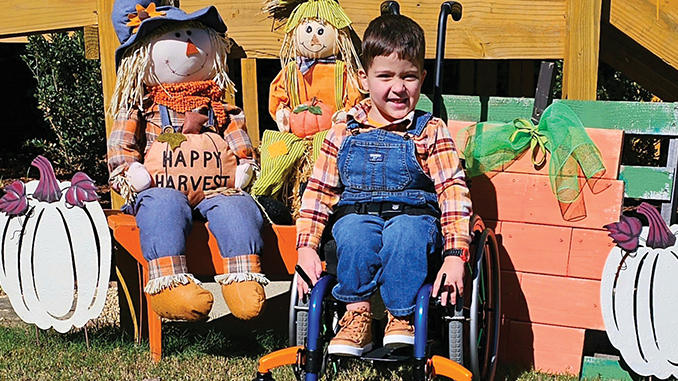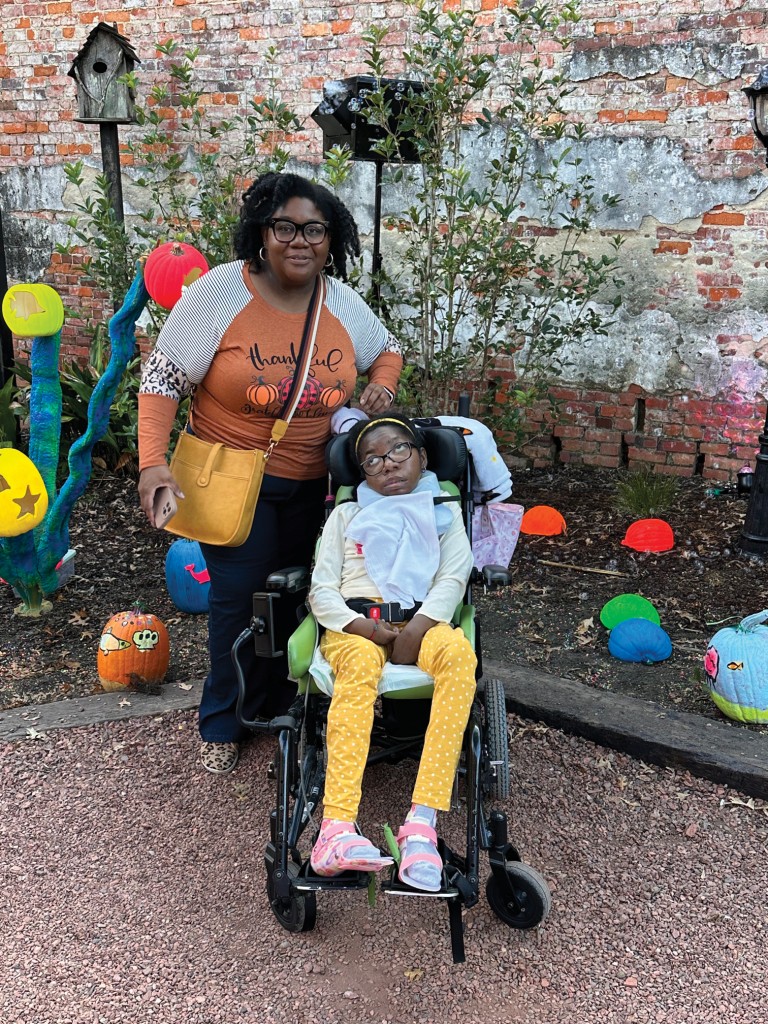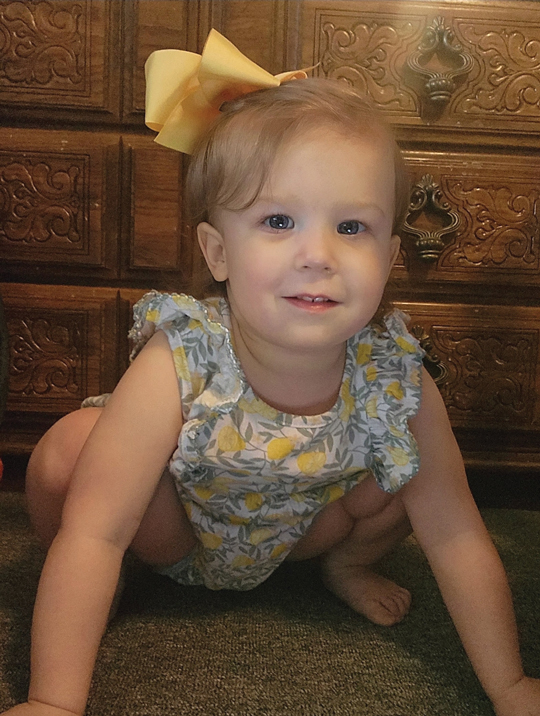
Birmingham Parent recently sent out a call for common comments parents have experienced. These are just some of the many shared with us.
Published: February 29, 2024
By: Carol Muse Evans
If you are a parent of a child with special needs, you know. You’ve heard some of these comments before. While many people mean well, they can say things that are upsetting, ignorant or hard to swallow.
Birmingham Parent recently sent out a call for these common comments parents have experienced, and we had an avalanche. These are just some of the many you shared with us:
“Your child should walk rather than be carried,” says Sharee Clifton, Locust Fork, AL, whose son Jace, age 4, has Spina bifida.
“I know it’s hard, having a sick child,” shares Mattisa Moorer, mom to Kerstin, age 22, of Hayneville, AL, who has multiple diagnoses, including cerebral palsy, epilepsy and scoliosis. “Just because she has disabilities doesn’t mean she is ‘sick’, “Moorer says “If she were sick, we wouldn’t be in Target.”

“Did you get tested while you were pregnant?” from Sandy Lovell of Alabaster, AL, mom to Allie, age 16 (who was on a Birmingham Parent cover at Easter Seals about 8 years ago) who has Down syndrome. The implication here is awful, Lovell explains, and devalues her as a person. Another is “Are you sure she has it?” since she is high-functioning.
“Why don’t you put her in a school or an institution?” from Belinda Franks of Jasper, AL, mom of Bellah who is 18 has autism, apraxia of speech (nonverbal), fetal alcohol, Cornelia De Lange syndrome, developmentally delayed and impulse control disorder, along with tremors.
“At least you get to stay home all day,” from Taylor Ritter of Fultondale, mom to Asher, age 3, with autism level 3, sensory processing disorder, global developmental delay and who is nonverbal.
“God knew you could handle a child with a disability,” from Angela Bauman of Gardendale, mom of Aaron, age 2, who has Down syndrome.
“A little bit of gluten will not hurt him,” from Clarrisa Shelnutt of Birmingham, mom to Gabe age 15, who has eosinophilic esophagitis, gastroparesis, juvenile idiopathic arthritis (JIA), growth hormone deficiency, narcolepsy, celiac disease, RA, SPD and high-functioning autism.
“Oh, she will grow out of it,” from Lauren Manly of Shelby County, mom to Remi, age 2, with level 3 autism and who is non-verbal.

Since 2010, entrepreneur and podcast host Allison Breininger has been her husband Sean’s primary caregiver as he battles Fanconi anemia (FA), a rare genetic disorder that can cause bone marrow failure, cancer, and other systemic issues — all of which Sean has suffered from.
In that time, Breininger has received hundreds of supportive messages from friends, family, and other well-meaning folks — but she admits there are two things you should NEVER say to a caregiver, no matter how helpful you think they may be.
“‘Take care of yourself’ and ‘Let me know if there’s anything I can do’ are TWO HUGE MISSES when it comes to supporting the caregivers in your life,” explains Breininger. “The first one is seeing that the caregiver needs support, but instead of offering it, puts that task back on their already overflowing plate. The second statement seems helpful, but it actually forces the caregiver to try to figure out ‘what do I need right now, and what is this person good at,’ which is a matching game that most caregivers just don’t have time to play.”
Instead, Breininger says a better way to help caregivers is to make specific and direct offers that can help free up their time and lower their stress, such as:
“When is a good time this week for me to sit with your loved one so you can have some time to yourself?”
“I would love to bring you dinner this week. Is Tuesday or Thursday better for you?”
“Since our kids are in soccer together, I’d be happy to drive them to practice this week.”
In contributing her voice to the Embracing Carers® initiative, Allison Breininger wants to raise awareness of the many challenges that caregivers face and offer suggestions to help them and their loved ones cope with the stress of the experience, including:
- Acknowledging that it’s common for caregivers to feel overwhelmed, stressed out, and worried — and that it’s okay to ask for help
- Where caregivers can look for support online or in their local communities
- How non-caregivers can be more effectively supportive of the caregivers in their lives
- What siblings and other family members can do to best support the primary caregiver of a parent
- How employers can provide practical workplace benefits and resources that make it easier for caregivers to provide quality care at home while remaining productive at work
“One of my favorite quotes is from Nakita Valerio, who said, ‘Shouting ‘self-care’ at people who need community care is how we fail people,’” says Breininger. “Caregivers need more support at every level.”
Breininger’s podcasts are available at I-Tunes, Spotify, and whever you download podcasts. Insickness.care is the website. Breininger also works with EMD Serono, a pharmaceutical company, to raise awareness of the needs of caregivers, Embracingcarers.com. They also offer one-on-one coaching.
“We need support and recognition,” she adds.
“Kids with disabilities are still just kids like their same-aged typical peers,” says Jasmine Jones of Tuscaloosa, mom to Jaden, age 6, who has alpha Thalassemia X-linked intellectual disability syndrome (ATX-ID) and a GLI-3 gene mutation. “Jaden likes to be included. He doesn’t like missing out. He doesn’t have a ‘developmental age’equivalent. He is 6. He has the life experiences (and maybe even more because of his medical journey) of any other person who has experienced life for 6 years. And I don’t want to change him,” Jones explains. “The world needs to be kinder and more accommodating…Needing support because of a disability isn’t a bad thing.
“The goal isn’t to make kids with a difference less different,” Jones continues, unless it’s medically necessary, in my opinion….There is no such thing as normal! We all have differences. Embrace them,” Jones adds.
Carol Muse Evans is the publisher and editor of Birmingham Parent. Allison and her husband, Sean, live in St. Paul, Minnesota with their teenage daughter, Maya.
